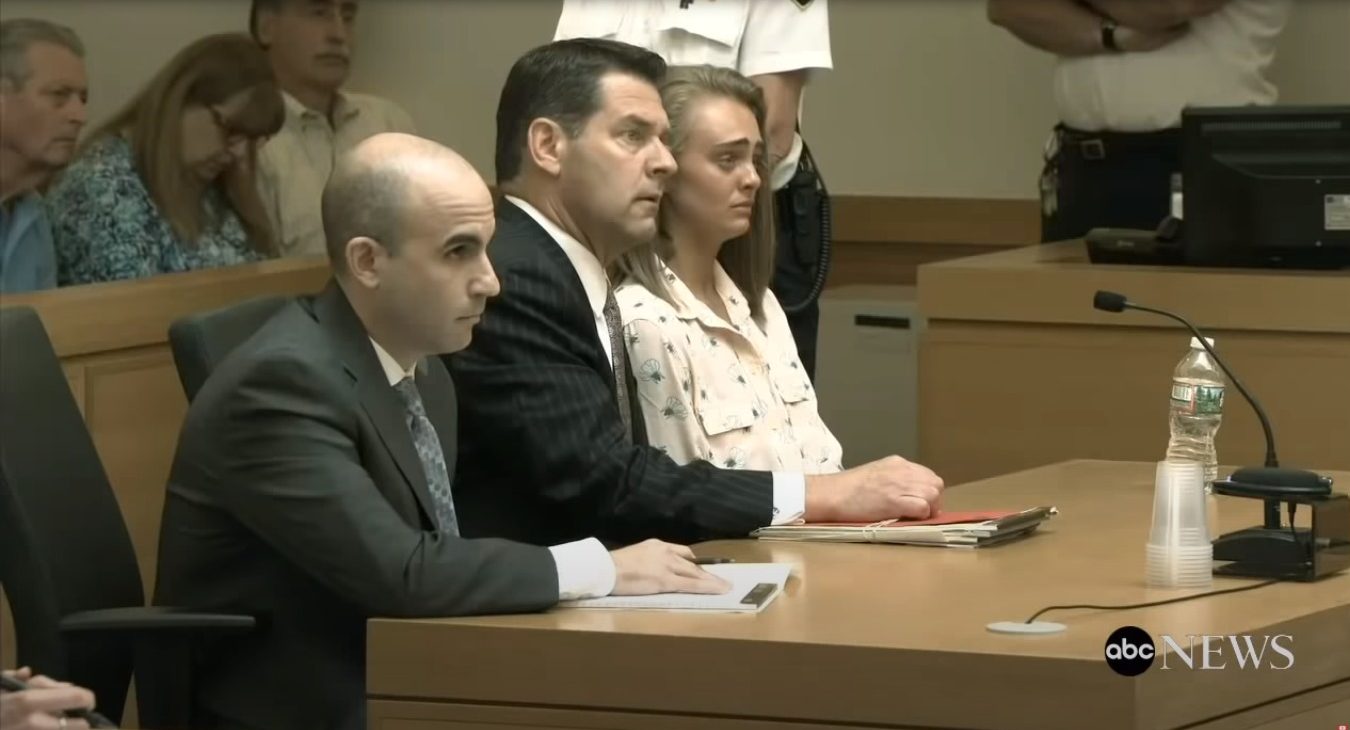Hulu’s ‘The Girl from Plainville’ follows the tragic story of the death of eighteen-year-old Conrad Roy III and the events surrounding it. The miniseries delves into Conrad’s relationship with Michelle Carter and how the latter might have played a role in urging her boyfriend to go through with his planned suicide.
The show paints an intriguing image of Michelle Carter, making her seem vulnerable at times and manipulative at others. There is also a feeling that she’s using the death of her boyfriend to garner popularity, to say nothing of her using lines from a television show in order to convey her sadness. Of course, parts of the show are dramatized, but the central characters are based on real people. So what really is going on with Michelle Carter, and could she be a psychopath or a sociopath? We dug around, and here’s what we found.
The Difference Between a Psychopath and a Sociopath
The terms psychopath and sociopath are heard quite often in pop culture. However, in terms of their understood meaning and usage, a few similarities and distinctions between a psychopath and a sociopath can be made. While deceit and manipulation are strong characteristics seen in both, sociopaths are seemingly more impulsive and erratic in their actions when compared to psychopaths.

Psychopaths are better at disassociating from their actions and guilt but also struggle to form attachments with people. Sociopaths, on the other hand, can make connections with people and can potentially feel more guilt than psychopaths. Finally, the presence of psychopathic traits in a person can be assessed using the Hare Psychopathy Checklist-Revised (PCL-R).
Is Michelle Carter a Psychopath or a Sociopath?
Michelle Carter’s boyfriend, Conrad Roy III, was found asphyxiated in his car after dying of carbon monoxide poisoning on July 13, 2014. He was eighteen at the time, and Michelle was seventeen. When the authorities uncovered their frequent interactions over text messages, email, and phone, it was found that Conrad, who had a history of severe depression, had long discussed his plans for suicide with Michelle. One of the messages she had sent him was, “You always say you’re gonna do it, but you never do. I just want to make sure tonight is the real thing.”

According to court records, the two were in touch over calls on the day of Conrad’s suicide, with one call, which lasted over forty minutes, seemingly taking place while he was committing suicide by using a generator to pump carbon monoxide into his car. An excerpt from a subsequent text message Michelle sent to a friend reads: “His death is my fault. Like, honestly I could have stopped it. I was the one on the phone with him and he got out of the car because it was working and he got scared and I [expletive] told him to get back in…”
Michelle’s condition was discussed during her subsequent trial. Dr. Peter Breggin, a defense witness who has given expert testimony on multiple occasions, claimed that antidepressants like Prozac and Celexa, which Michelle was prescribed between 2011 and 2014, had resulted in an “intoxicating” effect and “transformed” her into being apathetic. Breggin was also asked by the prosecution why he had changed his diagnosis of Michelle from mentally stable to anxiety and depression. The doctor said that he had updated the diagnosis after extensively going through her communications with Carter and speaking to adults close to Michelle.
On June 16, 2017, Michelle Carter was found guilty of involuntary manslaughter and subsequently sentenced to serve fifteen months in prison immediately. She was later released early on account of good behavior. It is difficult to gauge precisely how many psychopathic traits (if any) Michelle might have, and as noted above, even professionals are seemingly unable to offer definitive answers. Considering she was seventeen at the time of Conrad’s death, Michelle’s actions (and personality) cannot be categorized as either sociopathic or psychopathic at this time.
Read More: Where Are David and Gail Carter Now?


You must be logged in to post a comment.